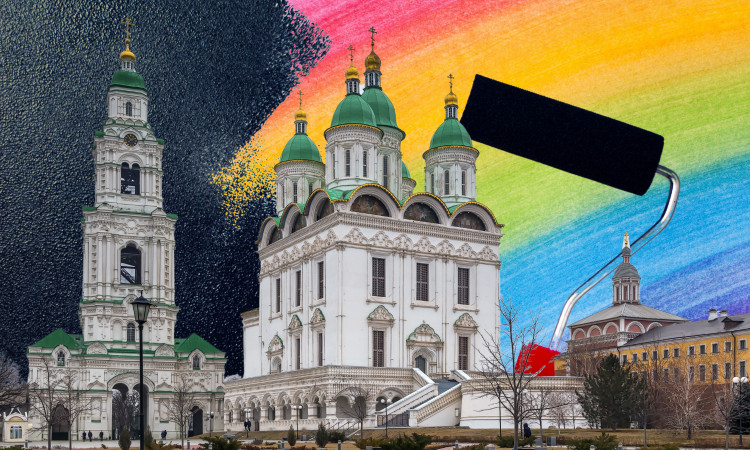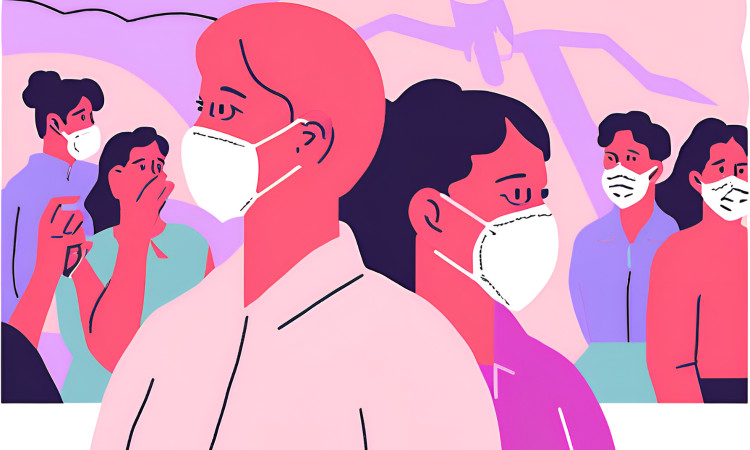Citizens who cannot get the support they need
Trans and Homeless: Citizens who cannot get the support they need
16/Dec/24
3850
Trans and Homeless: Citizens who cannot get the support they need
Author: Alex Shah
In Azerbaijan, the trans community faces significant barriers to housing, though this issue often remains overshadowed by other societal problems. Discrimination and stigma against trans folks create obstacles in finding safe and affordable housing. Many struggle with landlords who harbor hateful attitudes, forcing them into unstable or dangerous living situations.
Economic challenges exacerbate this crisis, as trans communities frequently experience higher rates of unemployment and underemployment, making it difficult to secure housing. The sharp increase in housing and rental prices several times a year stifles the economic independence of the community and hinders their ability to escape a hostile system. Additionally, the lack of supportive resources and legal protection means that many are reluctant to file complaints when they face discrimination or eviction.
Hayat Alisoy, a 24-year-old, complains that even with a budget, she cannot find housing due to her trans identity.
“When your gender identity on your ID doesn't match your social appearance, all the problems start right then and there. People immediately assume you're a sex worker, and they don’t want to rent to you. Either they demand double the price, or they don’t rent to you at all. The high cost of housing in the city center drives trans people away, and, as in all Eastern European cities, the outskirts of the city are dangerous for trans people.”
This year, Hayat had to leave her apartment because the local police learned about her gender identity.
“This spring, I felt I was being followed by the police in the neighbourhood for a week. Later, late at night, the police came to my door. They said they knew I was a sex worker and that what I was doing was a crime. I had to either leave the house or pay a bribe. That day, I packed my things and left. When I went to look for rental places, they didn’t want to rent to me and made sexual offers. The brokers would say I could get a place only after having sex.”
Hayat emphasises that most trans people do not have the privilege to own private housing. She currently receives no support from either the state or her family. Hayat sees the state and her family as the main reasons for her homelessness.
According to women's and queer rights advocate Gulnara Mehdiyeva, the rental housing sector in Azerbaijan is far from being regulated by legislation. Although a certified rental agreement could protect tenants, it is very difficult to find people renting with a contract in Azerbaijan. There are several objective reasons for this. Since people earn little, they do not want to pay a large part of it in taxes.
“But if everything were transparent and done through contracts, trans people wouldn’t be able to find housing at all. Often, they have to send their relatives or friends to secure a place in their name so that it isn’t known that they will be the ones living there. However, if everything were done legally and with contracts, a third party wouldn’t want to sign the documents on their behalf, because if it were discovered that other people were living there, it could create legal problems. Trans people themselves would not be able to secure housing by revealing their identity and documents.”
Gulnara herself has faced harassment while looking for housing, receiving inappropriate messages from a broker. However, after cold responses, the broker didn’t go further. Single and independent women are seen as opportunities for such behaviour.
“In Azerbaijan, the most suitable housing for trans people is in buildings where neighbors are unaware of each other, doors are separated by long corridors, the walls are soundproof, and security is well-maintained. However, renting in such buildings is not affordable for everyone. Of course, financial status affects many things.”
“I believe that support resources for trans people are almost non-existent. At a time when the overall legal system in the country is at its worst, the situation for trans people, as the most vulnerable group, is even more dire. Of course, a few activists try to do what they can, but it’s not enough. They themselves also have limited access to resources,” Mehdiyeva added.
According to the Trans Rights Map published this year by Transgender Europe, Azerbaijan is the worst country in Europe in terms of trans rights. There are no provisions in the legislation regarding gender identity and gender expression. Since trans citizens are not recognised as a social group in the state's social service agencies, they do not receive state support. The Statistics Committee does not conduct research on groups rendered homeless due to gender identity and gender expression.
A 28-year-old trans woman, using the pseudonym Aysel, first experienced homelessness from her family. She was born in the Talish region into a conservative family. Her feminine self-expression at 19 led her family and relatives to react aggressively toward her. She quickly moved to Baku, where she encountered new problems. But this time, it wasn’t her family but house owners who didn’t want her.
“When I first came to Baku, I stayed with a trans friend I met online. But due to personal issues, I had to leave. For days, I was forced to engage in sex work and sleep at clients’ homes, and there were even days when I slept in parks.”
“When I applied for jobs at markets, they would look at me and laugh, saying, ‘There’s no vacancy right now,’ even though they had advertisements posted. When I wanted to move out on my own, brokers made sexual offers to me. They all deceived me by saying, ‘We’ll let you know today or tomorrow.’ After sex, they offered me a two-room apartment for 700 manats. They knew I would say no. To find a place at a lower price, I moved away from the city center to Masazir. Soon, the neighbors learned I was trans. The neighbors' children began harassing me on the street, everyone in the neighborhood was talking about me, and they were looking for the house owner’s number. After four months, the landlord asked me to leave under the pretext of house repairs.”
Aysel says that in Azerbaijan, if you have money, there’s a place for you everywhere, regardless of your identity.
“If you have money, you won’t take the bus; you’ll drive your car and avoid harassment. If you have money, you’ll sit in the most expensive restaurant, live in the center, and your trans identity will be traded with money. Perhaps we should be more regretful about being poor in this life than being trans…”
With an income that only covers her living expenses, Aysel's dream of owning her own home remains distant. She complains about the lack of resources for support and tries to stay away from police and state officials for her safety.
Social worker Leman Huseynova says families either try to deprive their children of the world or deprive the world of their children, and unfortunately, they often succeed.
“Generally, finding housing is difficult for queers because house owners do not want to rent to LGBTQI+s. We see that shared homes are found with the support of queers, or not found at all. If I were to give examples from real situations, young and old LGBTQI+s, especially trans women, are subjected to sexual violence by the owners of the rental homes they find or by other people they share the house with and cannot demand their rights. Because the state is not interested in providing support to trans people. There is no anti-discrimination law for trans people. Many trans citizens I know do not have private housing. In general, finding a rental place sometimes feels like a miracle because we face many negative reactions. Living with cis-hetero housemates often leaves trans people facing sexual harassment and assault. Absurd questions and so on start to affect them negatively, psychologically.”
Huseynova regrets the lack of a robust support system. “There are a few initiative groups, but their number is very small, and their ability to provide support is limited. Our legislation generally supports human freedom and rights for each individual, but this is not enough. In practice, we do not see these freedoms and rights applied to trans people,” she said.
The "heteronormative and feudal family" structure plays a decisive role in alienating trans folks from society.
LGBTQI+ rights defender Vahid Aliyev noted the connection between the housing problems faced by trans women in Azerbaijan and the formation of queer/trans kinship relations. He says: "Most of the experiences of trans women in Azerbaijan resonate with the struggles of trans communities in the country, region and globally."
"In response to the challenges of safe and affordable housing, trans communities are also developing informal kinship networks that serve as important support systems." Vahid Aliyev noted that in the 2017 LGBTQI+ hunt - before the large-scale arrests of LGBTQI+s, these kinship relations were observed a lot. Queer/trans kinships function as both a form of resistance and a practical solution to trans housing issues. Trans women share resources, offer support, and help each other through difficult times.
According to the human rights defender, these kinship relations are proof of the resilience of trans communities. "By creating their own support systems, trans women are not only meeting their immediate needs, but also challenging the brutal social structures that marginalise them."
According to information released by the United Nations, research on homelessness worldwide confirms that homelessness affects LGBTQI+s more. For example, studies conducted in Australia, Canada, the European Union, the United Kingdom, and the United States have shown that a high percentage of homeless youth identify as lesbian, gay, bi, trans, intersex, or queer. Young trans people, in particular, are at higher risk of becoming homeless. Data from Europe shows that intersex people are particularly at risk of homelessness.
Studies show that 17% of queers aged 18-24 face homelessness in Europe. Family rejection appears to be the most common reason for homelessness amongst LGBTQI+s. Furthermore, discrimination and violence experienced by LGBTQI+ youth in schools, foster care, or juvenile justice systems can lead to both homelessness and barriers to finding new housing. At the same time, LGBTQI+s who are homeless are more likely to experience physical and mental health problems, sexual violence, physical violence, drug use, or to engage in survival sex.
Powered by Froala Editor



